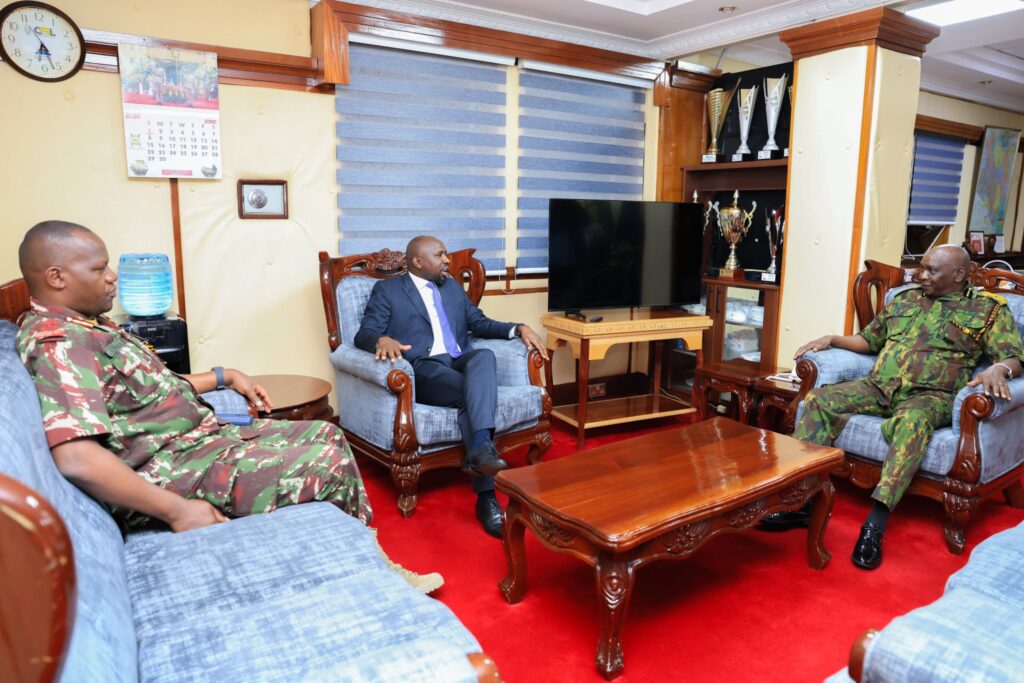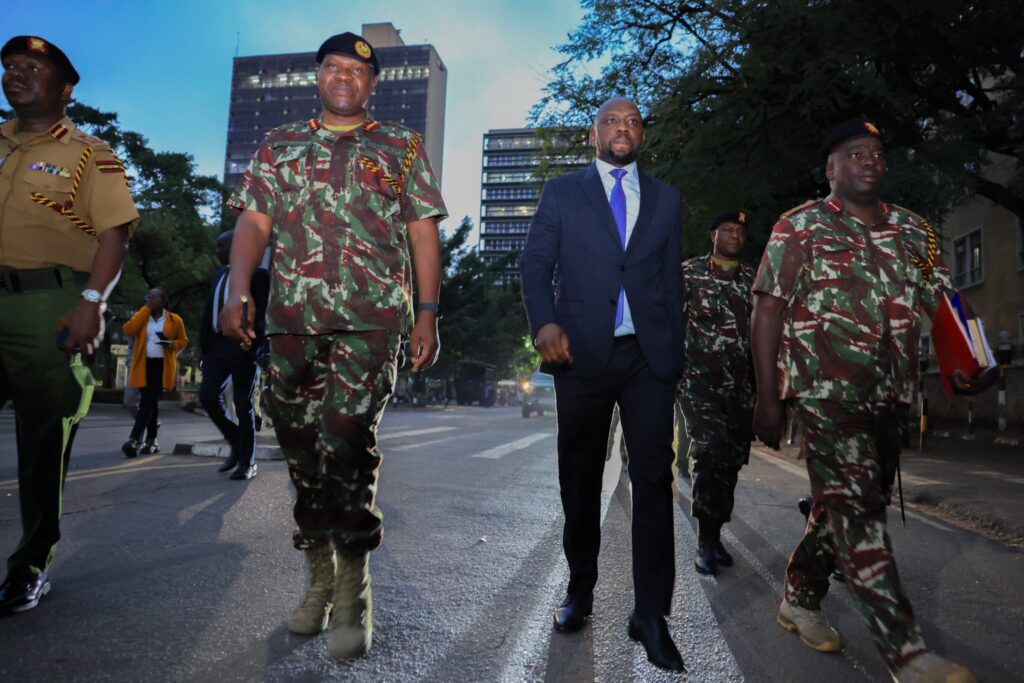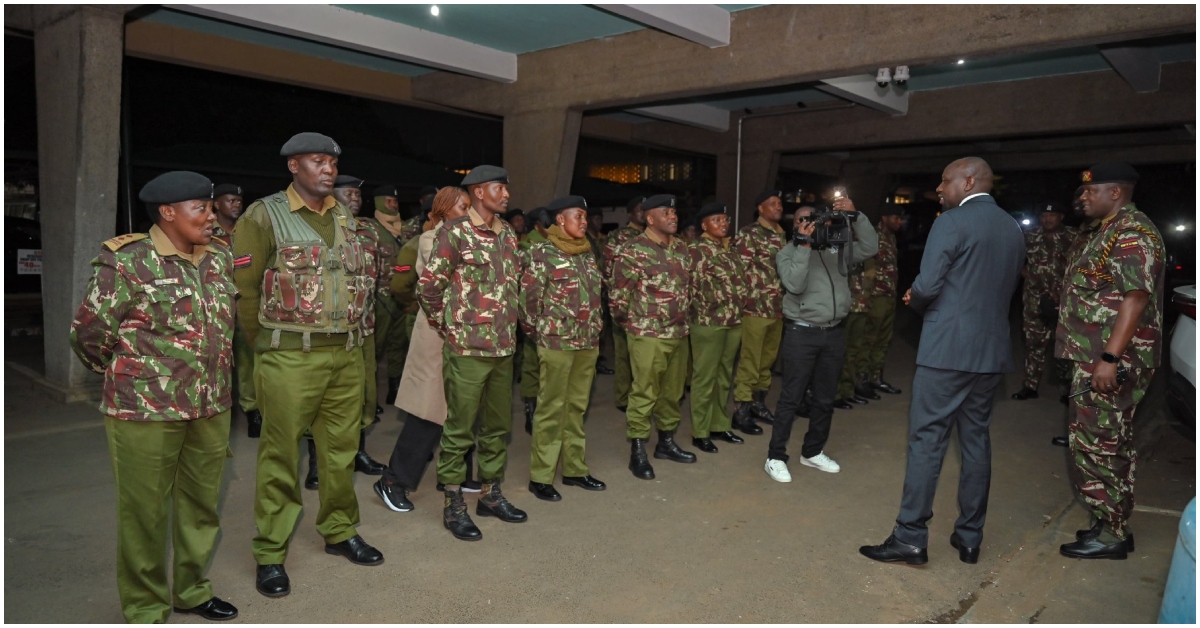Interior Cabinet Secretary Kipchumba Murkomen has delivered a fierce and defiant response to the events of June 25, 2025, claiming the nationwide protests were not a democratic expression of discontent but a coordinated insurrection aimed at destabilizing President William Ruto’s government.
“This was not protest. It was terrorism in the name of dissent. It was an unconstitutional attempt to topple the government. Our security forces stopped an attempted coup,” Murkomen said during a press briefing on Thursday, June 26, in Nairobi.
In a nation still reeling from scenes of burning buildings, tear gas, and grieving families, Murkomen’s remarks have ignited political debate and drawn a clear line between the state and what he described as “sponsored chaos.”
The Interior CS accused unnamed political actors of orchestrating a well-funded and premeditated uprising, pointing to deliberate attacks on police stations, courts, and public institutions.
“Criminals weren’t just looting—they were targeting guns, uniforms, and our police. Five firearms were stolen in Kiambu. This was a direct assault on the state,” he declared.
Inspector General of Police Douglas Kanja backed the CS’s claims, revealing that over 300 officers had sustained injuries during the protests, a fact Murkomen says has been deliberately ignored by both church leaders and foreign diplomats.

“No one is talking about the pain our police suffered. No embassy will defend them because it doesn’t serve their agenda for Kenya to be safe,” Murkomen lamented.
The protests, held on the anniversary of the 2024 Gen Z uprising, were initially called to demand economic reforms, youth empowerment, and justice for victims of police brutality. But Murkomen insists the demonstrations were hijacked by “hired criminals” with political motives, not moral ones.
“What we witnessed was not spontaneous,” he said. “This was organized, politically instigated violence meant to paralyze the state, terrify citizens, and collapse the economy.”

The Interior Ministry now vows to relentlessly pursue the architects and financiers of the unrest. Murkomen cited the destruction of businesses, homes, churches, and public offices, including one Catholic Church property burned in Embu, as evidence of a calculated campaign of chaos.
“We will not stop until every sponsor of this violence is brought to justice,” he vowed.
As Kenya struggles to balance the right to protest with the demand for order, the government’s rhetoric has taken a sharp turn — one that could define the nation’s political trajectory for months to come.



